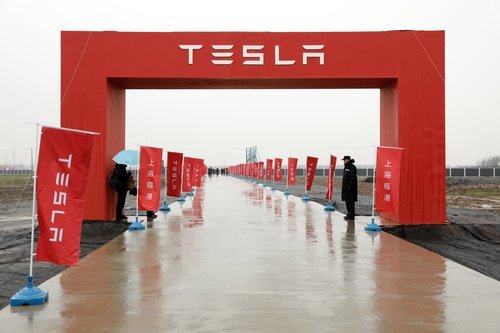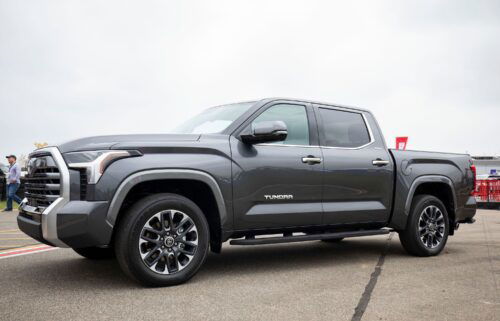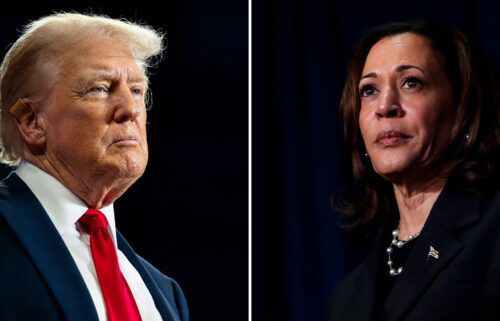American companies are taking enormous risks to do business in China

American companies doing business in China are navigating an unprecedented array of risks, from slowing growth to the trade war and pro-democracy protests in Hong Kong. But that hasn’t stopped many of them from pushing deeper into the vast Chinese market.
A handful of US businesses have gotten positive signals from China in recent weeks, paving the way for lucrative deals in the world’s second biggest economy. PayPal, for example, clinched a license to provide digital payments last month. The Wall Street Journal reported last week that BlackRock has talked to Chinese tech firm Tencent about a potential tie-up. And JPMorgan Chase won an auction in August that should allow the bank to take control of its asset management business in China. Final approval is still pending.
Plenty of other US companies are becoming more entrenched in China, too. Tesla spent the last year building a massive factory in Shanghai in a bid to tap the world’s biggest market for electric cars. Reuters reports that the factory may start production as early as this month. Tesla did not respond when asked about the report by CNN Business earlier this month.
Such relationships between American firms and China aren’t unusual. The country is home to more than one billion people, after all, which many companies see as a customer base ripe for the taking.
Corporate America is “still very much interested” in China, said Ker Gibbs, president of the American Chamber of Commerce in Shanghai, in an interview with CNN Business last week. “I think if you talk to American business executives, they don’t see a full decoupling as an option at all.”
‘We’re not slowing down’
For one thing, it pays to be on the ground. Nearly 77% of the companies that took part in AmCham’s annual survey this summer said they made money in China in 2018. Almost half of the respondents also said they expected to invest more in the country this year, compared to just under a quarter that said they would scale back.
“China will be a fully developed nation in 30 years. Its economy is going to be as big as the US,” JPMorgan CEO Jamie Dimon told Bloomberg in March. While he cited a litany of challenges — including corporate corruption and a lack of transparency — he also pledged his bank’s commitment to doing business there. “We’re all in. And so we’re not slowing down,” Dimon said at the time.
William Reinsch, the Scholl Chair in International Business at the Center for Strategic and International Studies in Washington, pointed to the sheer size of the market as something many businesses feel they can’t ignore.
“With 1.2 billion people, you can’t really be a multinational company or a global company without some kind of presence there one way or the other,” he said. “I think that’s part of what’s driving the train.”
For the companies that do manage to break into China, even a small presence can be fruitful. Reinsch pointed to PayPal, which might not be able to capture much more than a sliver of the digital payments market from incumbents such as Alibaba’s Alipay and Tencent.
“If you say, well, you’re never going to get more than 3% of the market, well, 3% of China is still a lot of money,” he added.
While Beijing is relaxing restrictions on some types of foreign investment, regulatory barriers can still be tough to overcome.
American behemoths like Mastercard and Visa are still locked out of the market. Acceptance of PayPal could suggest the country feels increasingly confident that its homegrown players will continue to dominate.
“It’s alright to let them in because they’re no longer a threat to their national champions,” Reinsch said of PayPal.
Challenges in China
There are other headwinds to contend with, though.
China’s economic slowdown and its ongoing trade war with the United States have created huge uncertainty for business — and that’s not going away. Slowing growth was the top concern cited in AmCham’s summer survey. And more than 53% of respondents said they would either delay or reduce investment as a direct result of US-China trade tensions.
“In China, American companies are basically keeping their heads down and making contingency plans,” said Jeffrey Towson, a private equity investor and professor at Peking University.
For American manufacturers, the onslaught of tariffs on China provides a good reason to leave the country. Many were already looking to places like Vietnam, since rising labor costs have made China a more expensive place to make goods than in the past.
Towson said some companies, like Walmart and Tesla, continue to build in China. But others are postponing decisions, for now.
“Until China and the US reach a new understanding about how they will operate in each other’s markets, lots of companies are going to stay flexible and non-committal,” he added. “That is bad for business and for [foreign direct investment] in particular.”
Foreign direct investment by American companies in China reached $6.8 billion in the first half of the year, according to the Rhodium Group. That’s slightly higher than the average recorded in the first six months of the previous two years. The research firm recorded a surge in the automotive sector, driven by Tesla’s factory project.
Tariffs aren’t as much of a concern for companies that don’t use China as a major manufacturing base. But the trade war has evolved into a bigger fight over the future of technology and national security, creating other headaches.
Take the US government ban on doing business with some Chinese firms, like Huawei. A decision in May to blacklist the tech company created complications for its American suppliers, like Intel and Micron. Micron has been able to sell some products to Huawei that aren’t subject to restrictions, but said in September that the ban has affected its revenue expectations and dragged on sales.
“It’s very political, and it could really shift very quickly,” Gibbs said. “And again, that’s the kind of thing that leads companies to delay their investment decisions.”
An uncomfortable place
Sustained pro-democracy protests in Hong Kong have also turned the spotlight on another big risk for American companies: The clash between their values and those of the Chinese Communist Party.
An NBA team executive set off an international storm last weekend when he tweeted support for the protesters. Tensions between Hong Kong and Beijing, which controls the former British colony, have been fueled by months of political unrest.
The controversy led all of the NBA’s official Chinese partners to suspend ties with the league, throwing its relationship with the country into turmoil. If it isn’t repaired soon, the tension could cause major financial pain for the NBA: The Chinese market makes up at least 10% of the league’s current revenue, and could reach 20% by 2030.
Reinsch, the Washington expert, said the episode illustrated how China is using its economic power to try to achieve its political goals.
“In that sense it’s an effort to deepen the Party’s control over people’s lives through censorship, not only domestically but internationally,” he said. “This definitely adds a new element of risk for foreign businesses and drags them into political debates most companies try very hard to avoid.”
The NBA on Friday canceled all media availability for teams for the remainder of their trip to China this week as the league.
“[The teams] have been placed into a complicated and unprecedented situation while abroad and we believe it would be unfair to ask them to address these matters in real time,” according to the statement from the NBA.
CNN anchor Christina Macfarlane was shut down by the Houston Rockets’ media officer on Thursday as she tried to ask a question about the standoff with China. The NBA later apologized to Macfarlane.
For American companies, the debate highlights fundamental, philosophical differences. The NBA’s initial response to the controversy — it said it recognized the executive’s views “have deeply offended many of our friends and fans in China, which is regrettable” — sparked bipartisan condemnation in the United States. Another American company, the video game publisher Activision Blizzard, was targeted with boycotts this week by western consumers after it banned a Hong Kong player from a competition.
“In the case of American companies, China’s actions squeeze them between Chinese demands to conform to their version of reality and Americans’ expectations that they will stand for freedom and human rights,” Reinsch added. “Not a comfortable place.”
Correction: An earlier version of this article mischaracterized Micron’s ability to sell some products to Huawei.


